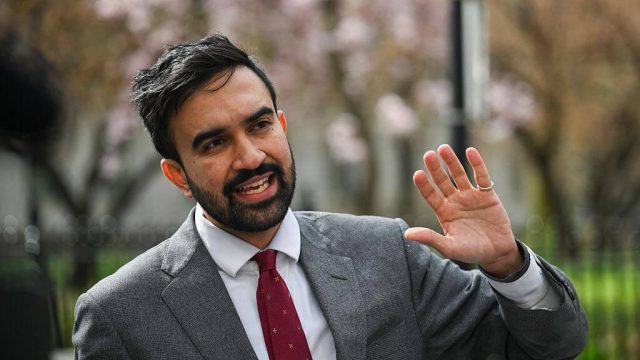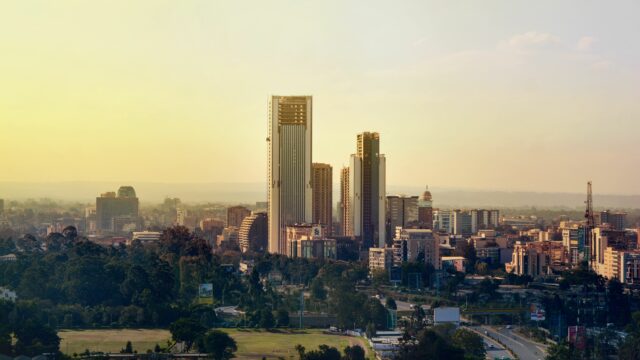Global green attitudes poll: Reasons to be cheerful 1, 2, 3
Our latest survey into citizen support for green policy around the world shows a nuanced and positive picture for policymakers

As 2024 comes to a close, we at the Green Economy Coalition have been reflecting on a couple of important trends that have shaping global politics and economics over the past 12 months: fragmentation of the political centre, the curse of incumbency, greater economic and social volatility, and ever-increasing polarisation of the electorate.
But this isn’t the whole story. In fact, there’s another narrative emerging, thanks to our just-launched global survey on citizen attitudes – one which paints a much more nuanced and hopeful picture for a green and fair transition.
1. People value the environment more than simple economic growth
Our research – conducted in partnership with the respected polling firm Savanta, and fielding more than ten thousand responses across ten countries – found that, globally, seven in ten people would prioritise environmental protection, even at the cost of some economic growth.
This is obviously a finding very relevant – and potentially at odds with – many prevailing narratives of the current moment, which tend to portray voters as losing faith in green initiatives under the pressure of rising costs and economic constraints. And when couched in terms of “protecting natural resources” or preventing pollution, the support becomes even stronger – as the above graph makes clear.
Communications implications
This chimes with other research that illustrates the importance of protecting the natural environment - especially rivers, woodlands and charismatic biodiversity – as a potential election issue and a tangible proxy for climate issues. For instance, see this on near universal support in the US and this from Wildlife Trust.
“ Contrary to many established narratives, demand for green action is considerably stronger in poorer countries than wealthier ones.”
This suggests that creating close connections with common public goods such as clean air and water, and framing climate issues in local terms that emphasize pollution, instead of macro concepts such as decarbonization, is an important tactic in our arsenal.
We should start local and end global when thinking of our message framing. We should show how climate solutions benefit people’s immediate community first – only then expanding the lens outwards to the country and then the wider international level.
2. Emerging economies leading the way
Our survey clearly shows that leadership on balancing environmental stewardship and economic development can now be found in emerging economies, as well as the strongest commitment to this more inclusive economic vision. Contrary to many established narratives, demand for green action is considerably stronger in poorer countries than wealthier ones.
- Demand for environmental protection is strongest in emerging economies compared with richer Western nations, with public support highest in Turkey (91%), Nigeria (89%) and South Africa (88%).
- An overwhelming majority of respondents (77%) are either “very” or “extremely” concerned about the impact of current environmental policies on future generations – and again, this concern is significantly higher in less-developed countries like Nigeria (88%) compared with richer nations such as Australia (50%).
Furthermore, a ranking of expressed preferences between the 10 countries surveyed showed that – contrary to received wisdom, the citizens of less developed countries like China, Nigeria and Indonesia are in fact far more willing to accept higher costs in return for securing environmental action. The citizens of less developed countries aren't just ready to participate in environmental action – they want to set the agenda for systemic change.

Action towards green and fair economies is not a luxury! In fact, the richest economy of those surveyed – Australia – was consistently the lowest performing respondent group across metrics of green demand and economic trade-offs.
Framing implications
So what does this mean for climate communications? We cannot accept “delayism” the framing that green and fair action is too expensive to do right now – because “later” is too late. In truth we cannot afford not to transition. However, we need to connect to the underlying needs that make this false argument compelling to many voters.
For instance: A fair and green transition can address the cost-of-living crisis at its roots. Government action to insulate houses can lower heating bills. Messages that talk to redesigning our economy to invest in renewables, making countries more energy secure and less exposed to market volatility have potential. Households are already bearing the costs of short-sighted energy policies and expensive fossil fuels. High prices means people are colder, poorer and more anxious. But green economic policies have the potential to alleviate this in the medium-term, and we need to be making that case.

3. Demand for more inclusive policies and government action
From this survey and others we can see indicators that people are supportive of more transformative policies than those being offered by our politicians.
- Lack of government support is the leading factor preventing respondents from making better choices for the environment – demonstrating an appetite for stricter regulations around industrial pollution, waste management, and investment in clean energy.
- This lack of government support is much more keenly felt in emerging economies like Nigeria (65%) and Peru (61%) than developed ones like Australia (34%).
Voters are open to more radical solutions to address these issues, like higher taxes, especially on those at the top of the wealth scale – but politicians are failing to seize the opportunity for transformative solutions. Reinforcing some of our findings, an Earth4All survey found that over two-thirds of respondents supported introducing a wealth tax, with only 13% opposing. Indeed, failing to support wealth taxes increasingly seems to be a luxury that only the rich can afford.
Organising implications
As we move to a low carbon economy and fairer society we need more than technical solutions. For a just transformation of our economy, politicians, policy makers and climate campaigners need to start taking into consideration those who will bear its greatest costs. The realities of those impacted by the transition need to be absorbed and engaged with by climate proponents. We need to be building on existing social demands for better citizen outcomes, by developing new ways to empower people to engage and act in their communities, and investing the time, skills and space to connect people with others to build broad based support for transformative action. Political resistance needs to be overcome and that requires the building of deep power within and between communities.
4. Future Generations
Building on the work of the Potential Energy Coalition we wanted to explore their findings that one message moves the whole world significantly: protecting the planet for the next generation. Our polling also points to future generations as an important framing. A significant 77% of respondents expressed being “very” or “extremely” concerned about the impact of current environmental policies on future generations.

Talking about climate issues through the frame of in heritance, legacy and using proxies like children’s health rather than the freedom of motorists can open up new spaces for conversations with older and more conservative voters traditionally seen as opposed to green policies. These voters are also especially responsive to framings that emphasise the protection of the natural world and the reduction of pollution – so perhaps a new narrative that plays on cleaning up pollution for the sake of the grandchildren could be effective.
Interestingly, the survey highlights that middle-aged respondents (aged 45-64) are the most willing to make lifestyle changes to achieve sustainability, with 62% responding positively. This demographic’s readiness to adapt their lifestyles underscores a growing recognition that sustainable practices are essential for future generations.
“ Another surprising finding is that concern for future generations is much higher in less-developed countries like Nigeria (88%) compared to wealthier nations such as Australia.”
Another surprising finding is that concern for future generations is much higher in less-developed countries like Nigeria (88%) compared to wealthier nations such as Australia (50%). This disparity suggests that citizens in emerging economies are more acutely aware of the long-term consequences of environmental degradation and are more vocal in their demand for change. It might also point to different national demographics – Nigeria is a young country with half the population below the age of 18, compared to just 20% in Australia.
Conclusion
Our survey paints a complex, yet overall hopeful picture of citizen appetite for change around the world. Although it is hardly an exhaustive study, we will be repeating the polling in 2025 and 2026, hoping to see how these trends are changing over time as the world continues to grapple with climate impacts and political headwinds.
If you would like to use any of the findings in your own work, do
head over to our results page, where you can find both global and
national findings, as well as the complete data-sets and methodologies
for all the national surveys. We’re committed to releasing this data as
open-source and free for other organisations to adapt and make use of –
so please do feel free to do so (just don’t forget to give credit and
tag us if you do!).
- Jean McLean, GEC


